LATE NIGHT WITH THE DEVIL (2024)
A live television broadcast in 1977 goes horribly wrong, unleashing evil into the nation's living rooms.
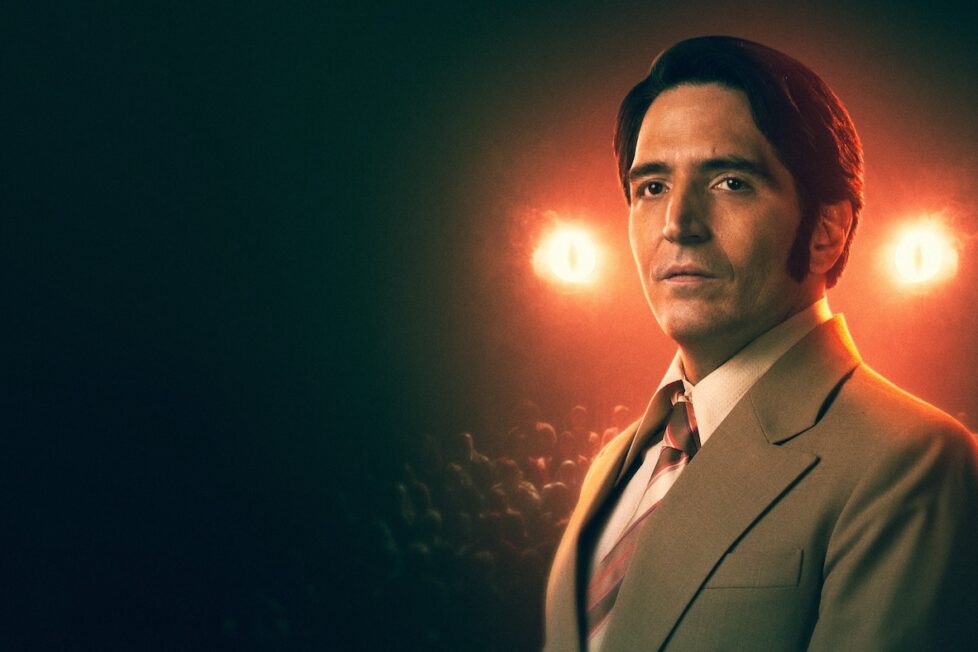
A live television broadcast in 1977 goes horribly wrong, unleashing evil into the nation's living rooms.


“What did you have to sacrifice to get here tonight?” a reporter asked Jack Delroy (David Dastmachian), the main character (protagonist feels too kind a word) of Late Night with the Devil. The question goes unanswered, swept away in a fast-moving montage, but it haunts the rest of the film. What did Jack sacrifice to get here?
Late Night with the Devil, written and directed by brothers Cameron and Colin Cairnes, is a film steeped in genre. Like the great horrors that came before it, this movie isn’t purely about creating fear, it’s a psycho-social satire where the best scares are echoes of modern anxieties.
Framed as found footage of the lost final episode of a late-night chat show, Late Night with the Devil opens with a documentary-style narration. We learn that Jack Delroy is a failing also-ran in the late-night comedy scene and his contract is nearly up. In a bid to boost ratings, he’s been staging altercations with his guests. The recovered footage reveals that in the final episode, a Halloween special, he would take his desperate antics a step too far…
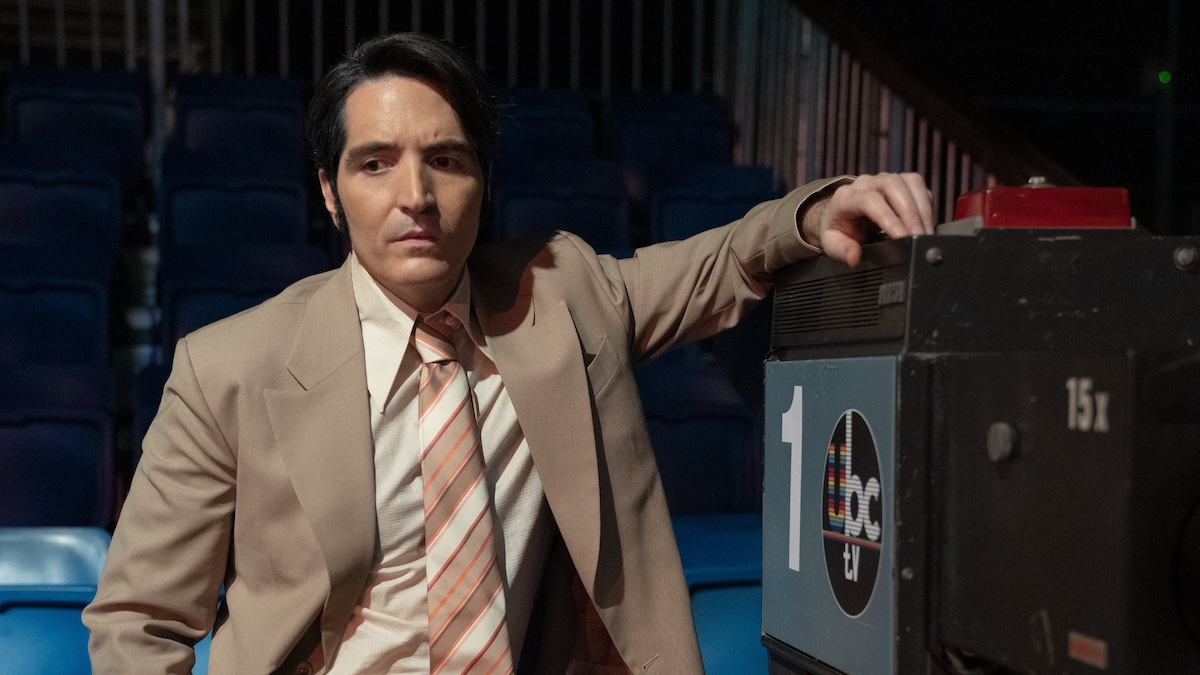
Then the credits roll, the curtains lift, and we’re brought into the television set. Delroy and his producers, led by Leo Fiske (Josh Quong Tart), have crafted an hour of TV designed to hook a nation obsessed with the occult. The lineup includes a medium, a magician, and a parapsychologist with her supposedly possessed patient who’s the subject of a new book called Conversations with the Devil.
Two things immediately stand out. Firstly, it’s clear that a television set, or even the belief that we’re watching television, works brilliantly for horror. Television is an intimate medium. It evokes the comforts of home and makes the psychic violations of horror all the more impactful. I also can’t help but draw connections to the internet and the algorithm-driven nature of things. We know the Halloween special is tailor-made for 1970s America and that the episode ends badly. Perhaps we shouldn’t always be this optimised for the audience.
The found footage unfolds in real time, capturing the look and feel of the era perfectly. It’s a pitch-perfect pastiche of a late-night talk show, which surprisingly makes for good pacing. We, the audience, are familiar with the format—we endure the unfunny monologue and watch the first guest, the mononymous Christou (Fayssal Bazzi), attempt to summon the dead. The film is both slow-burning and strangely fast-paced, maintaining a firm sense of foreboding. We, the viewers, know things will escalate from the first guest to the second and third, as we wait anxiously for the parapsychologist and her possessed patient.
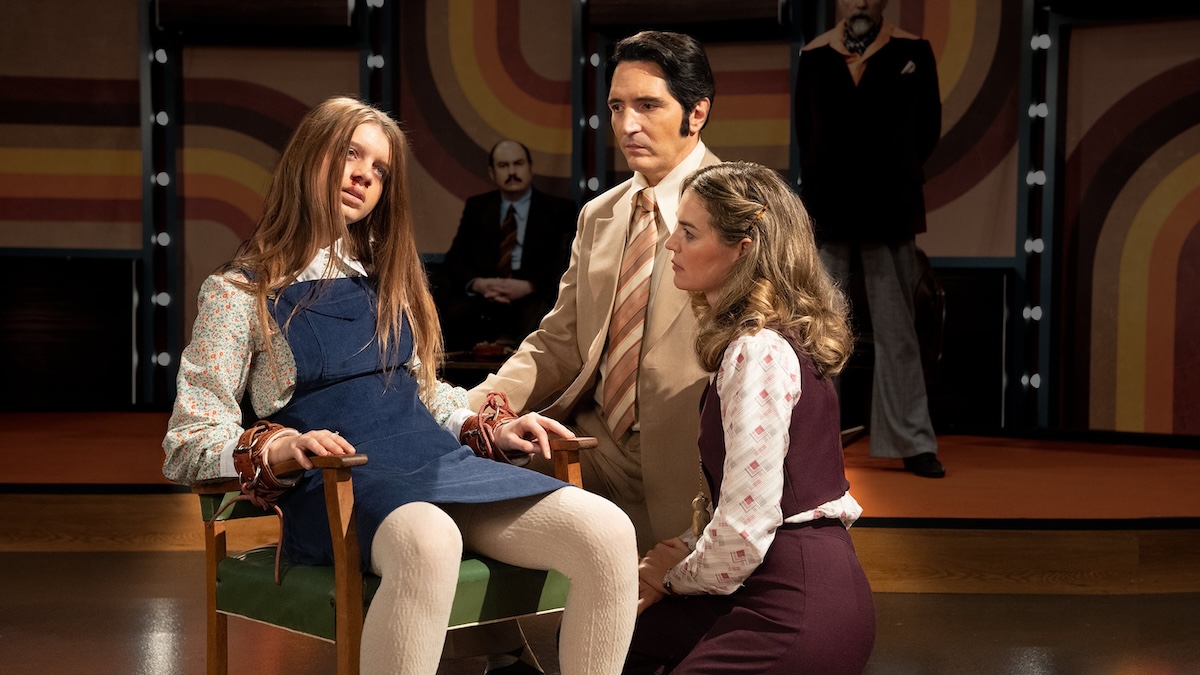
Playing the lead role of Jack Delroy, David Dastmalchian (The Suicide Squad) delivers a suitably glossy performance, shepherding us through the drama. In an early scene, for instance, where the medium has a convincing and unsettling conversation with a spirit, there’s a prying close-up on Delroy. Where we might expect to see genuine regret or fear, we’re instead met by eyes that both hint at depth and present a façade of calm to the camera. We can never quite get inside Delroy’s character, never quite tell if he’s second-guessing this hour of programming and the decisions he’s made to get here. Dastmalchian perfectly captures the essence of a second-rate TV host.
The real cleverness of the film—and its subtle originality—lies in its attempts to thwart any belief in the supernatural. The second guest is Carmichael Haig (Ian Bliss), a reformed illusionist now dedicated to debunking the occult. Throughout the proceedings, he provides a running commentary, keen to point out how Christou’s powers of intuition are nothing more than skilfully conjured stagecraft. Of course, Delroy’s desire to agree contributes to Haig’s commentary. He wants to believe that the scary things happening in Late Night with the Devil are merely a spectacle.
Late Night with the Devil builds an argument that what you’re watching is genuinely real by undercutting its horror as frequently as possible. This ingenious trick builds a sense of impending dread, a feeling that you are indeed witnessing something supernatural unfold. Haig acts as the voice within us all that desperately wants to believe, “This is fiction, this is fiction.” Throughout my viewing, I had chills down my spine on multiple occasions. I left the theatre thoroughly disturbed.
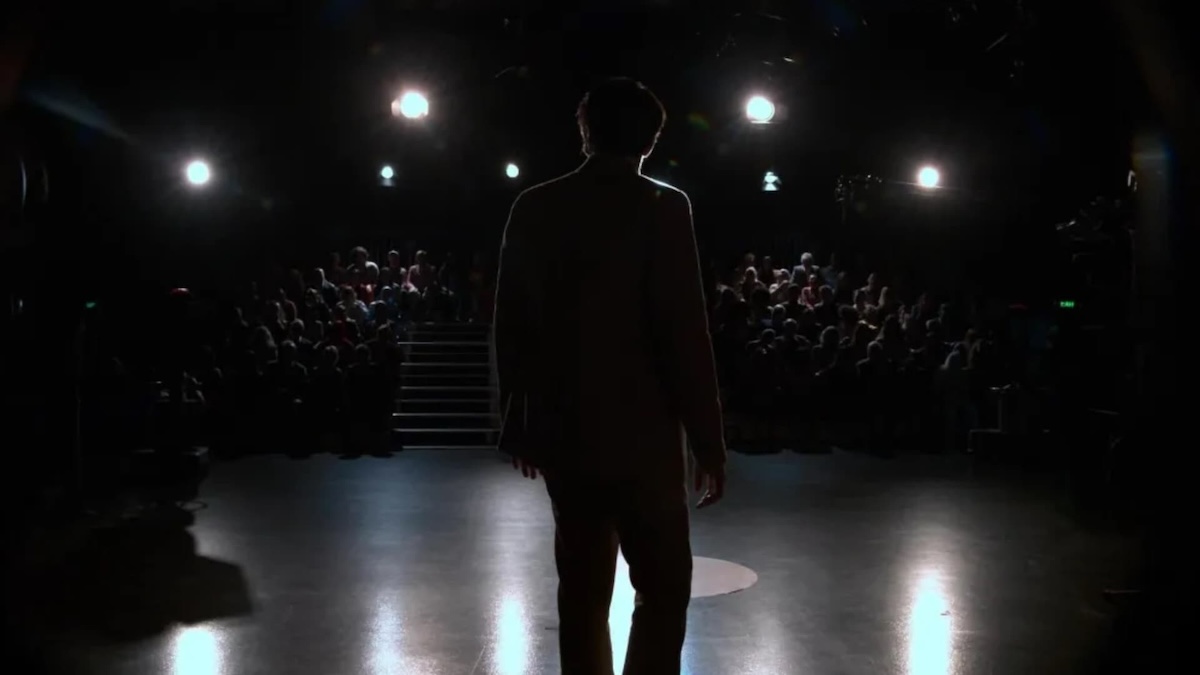
Disturbance is where the horror ended for me, though. While I would have appreciated a few genuine cover-your-eyes scares—the film certainly earns them—I also admire Late Night with the Devil’s fidelity to its mission. A traditional jump scare wouldn’t work in the 1970s late-night broadcast format. The camerawork wouldn’t allow for it. Instead, we got the best scares that the format’s conventions could muster.
This brings me to my main point. The film offers an original perspective on found footage, and Haig provides an even more original meta-commentary. However, these fresh takes ultimately loop back into the genre’s core theme: social anxiety. Jack Delroy’s desperate craving for more attention has ensnared him in this hour-long ordeal. We witness just how expendable the women in his life are—like his partner and parapsychologist, June Ross-Mitchell (Laura Gordon)—if their well-being stands in the way of his ratings.
I’m scared by what Delroy is willing to stomach for success. I’m even more scared because his character and actions are believable in their context. Late Night With the Devil, like Dastmalchian’s reflective performance, holds up an uncomfortable mirror to the viewer. I can’t tell if the film offers an anti-capitalist critique or a warning on human nature. Never ham-fisted, it lets the viewer decide.
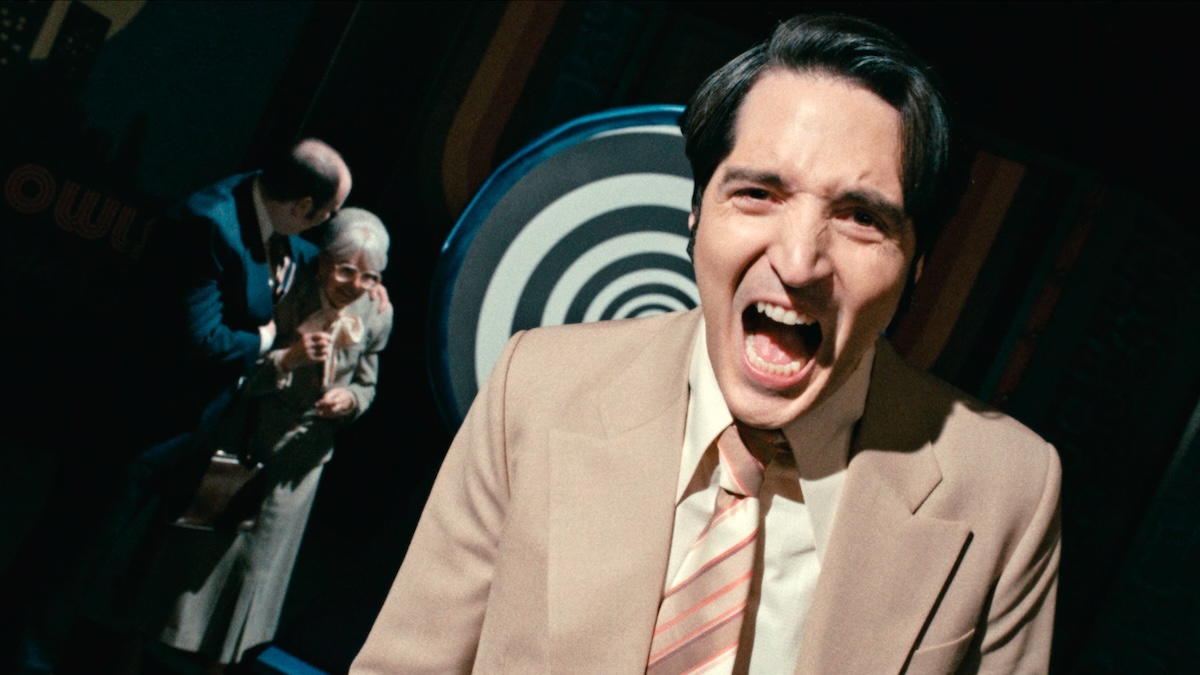
It’s also worth mentioning that, for my opening night viewing at least, there was a spoof on the introductory production company animations. In place of the standard one to three studio credits, there were roughly 10 to 15, alerting us to the satirical nature of what was to come. This was not only a fun touch, but perhaps a necessary one.
It’s worth noting that during the commercial breaks of the found footage, we cut to a present-day version of backstage. This disrupts the immersion in the documentary and found-footage framing. However, I’m not too bothered by this inconsistency. It would have been preferable to maintain the documentary conceit, but I can understand why ditching it brings scenes of possession closer to our reality. What’s happening isn’t simply a historical account of an episode we might leave in the past.
The only thing Late Night with the Devil needed was a polish. Perhaps an extra 20-minutes would allow them to connect and tie up the various threads of Delroy’s past. But this is a brilliant horror film, faithful to the genre yet refreshing, and confident in its message.
AUSTRALIA • UAE | 2024 | 93 MINUTES | 1.85:1 • 2.35:1 • 4:3 | COLOUR | ENGLISH

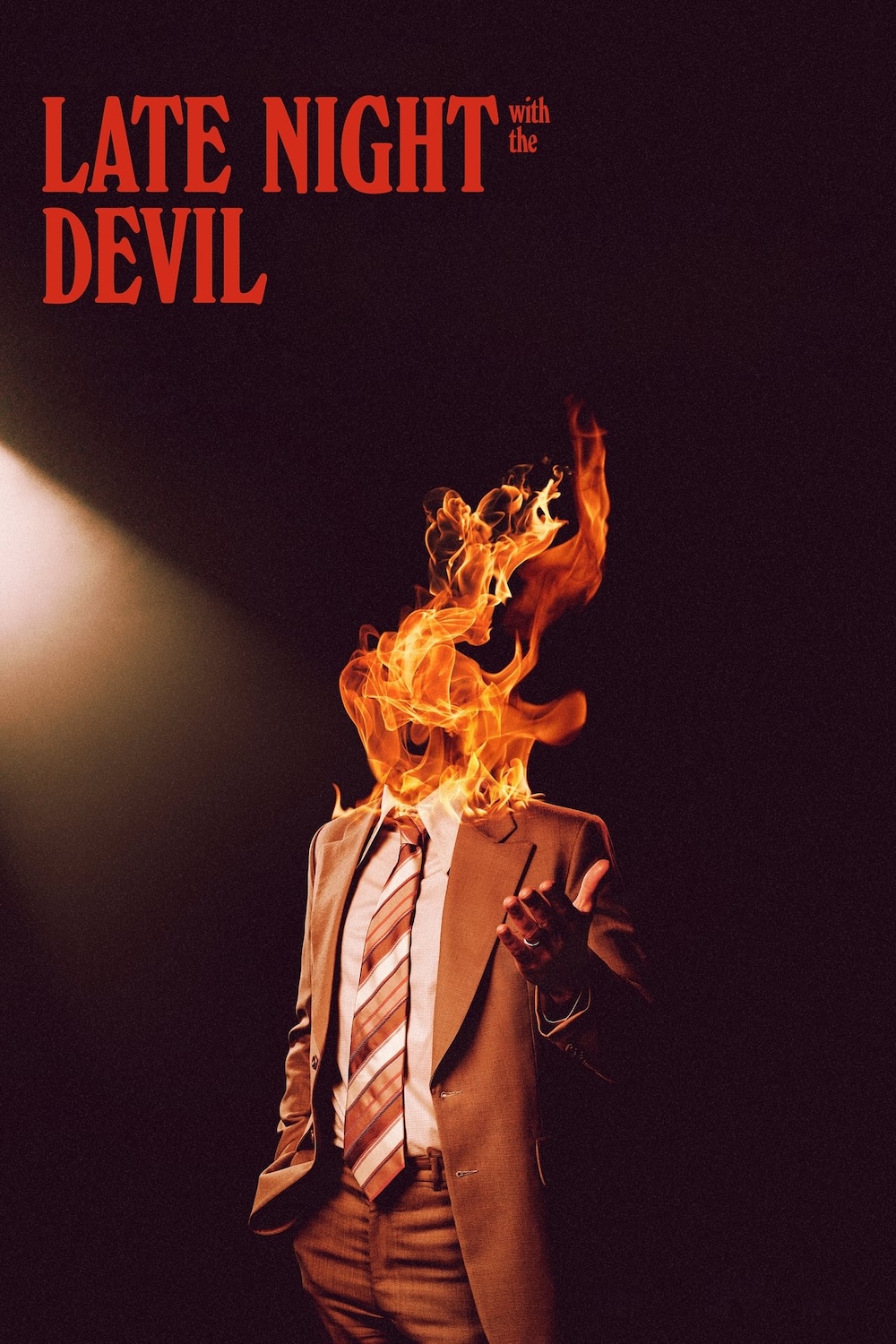
writers & directors: Colin Cairnes & Cameron Cairnes.
starring: David Dastmalchian, Laura Gordon, Ian Bliss, Fayssal Bazzi, Ingrid Torelli, Rhys Auteri, Georgina Haig & Josh Quong Tart.
